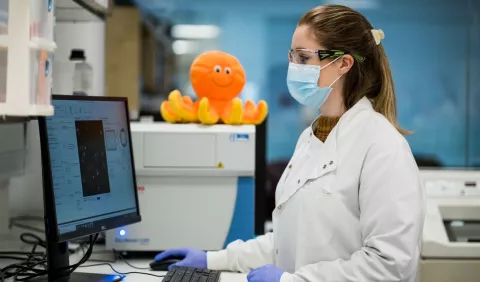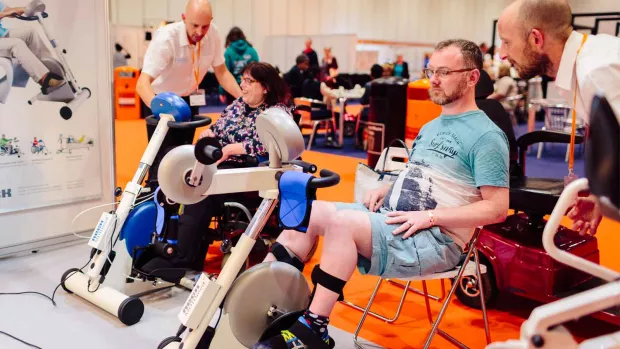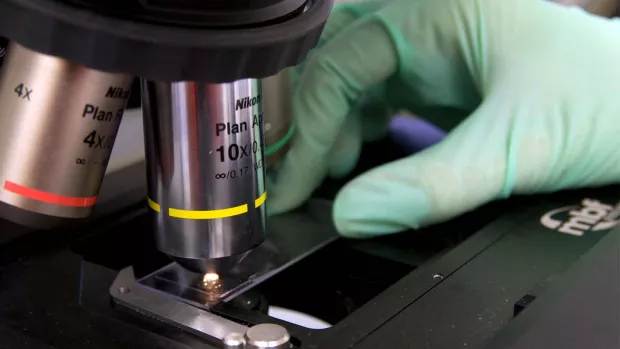
How are treatments chosen for Octopus?
We spoke to Professor Denise Fitzgerald to find out how treatments are chosen for Octopus, our revolutionary mega-trial.
A group of experts spent many months pulling together a huge list of drugs that might show promise for treating progressive MS. Denise was part of that group, along with other scientists, clinicians and people with MS. The options were ranked. And the list whittled down to those with most potential.
Information came from all sorts of sources. The group combed existing research studies looking for encouraging results. Experts proposed drugs they thought had potential. Members of the public could make suggestions too.
Looking for existing drugs that could protect nerves
The group focused on drugs already used for other conditions. Denise said “there are so many existing drug If there’s a chance some could be helpful in MS, it’d be a real shame to not take advantage of that. You can get existing drugs into later-stage trials more quickly than brand-new drugs too.”
Read our blog explaining drug repurposing in MS
They wanted candidates that might protect nerves. All of us lose nerves as we age, but this happens faster in MS. So to stop MS, we need drugs that can slow it down.
Weighing up the evidence
Denise said “shortlisting the best candidates was a balancing act, weighing up all the different factors.”
A good candidate needs to have evidence that it works on cells or in animals in the lab. It might be effective in another neurodegenerative condition. Or it could already have been successful in early MS trials.
And they needed the views of people with MS. Octopus can’t succeed if people aren’t willing to take the drugs, even if they have really convincing evidence. So it was important to understand how people felt about a drug’s side effects, how it’s taken, or how it affects other areas of life, like pregnancy.
Making the final recommendation
Ultimately that’s how the two top-ranking drugs, metformin and alpha lipoic acid, were decided.
Denise now co-chairs a Treatment Advisory Committee, alongside Professor Anna Williams. They make recommendations to the team running Octopus, who make the final call on which drugs to test.
She said “We aren’t looking for just a smidgen of evidence. We want strong, compelling evidence a drug has been robustly tested. And that it’s actually feasible to use in a trial and in the clinic.”
Both drugs have shown promise in very small groups of people with MS – now Octopus will hopefully give us a definitive answer.
Just the start
This is just the start for Octopus. Its design means the team can slot in new drugs as they’re identified. Denise said “There are already other drugs we’re excited about, but haven’t crossed the threshold for recommendation yet.”
Those drugs are on their “watch list”. They’ll continue monitoring the evidence and looking out for new candidates.




